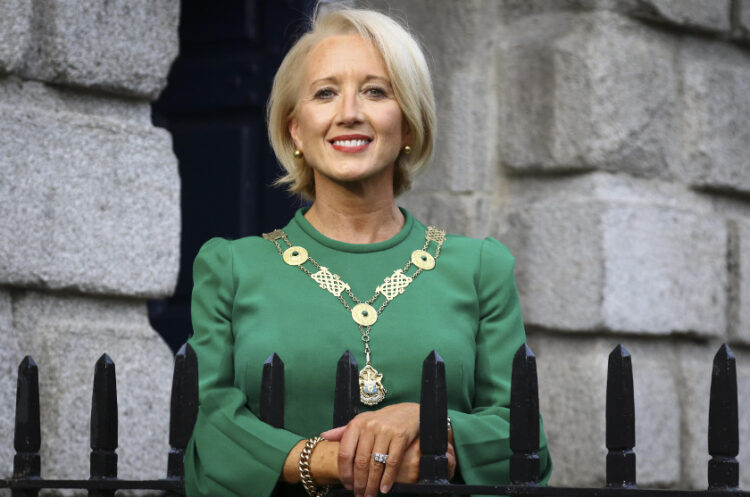By Gabriel Princewill-
The president of the Law Society of Ireland, Michele O’Boyle, joined Lord Sumption and TCD law professor Dr David Kenny, in addressing the pandemic regulations before a special committee.
The Oireachta committee which met today at Leinstein House to discuss the legislative framework underpinning the State’s response to the Coronavirus Pandemic.
Michelle O’Boyle (pictured)said the Government’s communication of public health restrictions “fell short” on some occasions during the pandemic.
“It is a requirement under Irish law, EU law and the European Convention on Human Rights that there should be certainty as to the nature of legal obligations placed on individuals. On some occasions, the communications around restrictions fell short of providing such certainty because the extent and application of those restrictions was unclear.”
In general terms, we would caution against introducing powers normally reserved for the investigation of serious criminal offences for the purposes of enforcing what are, at their core, health regulations”
Michele O’Boyle said
Garda Powers
She raised concerns over the use of garda powers to ensure people complied with Covid-19 measures.
“The advisability of using policing as a means to ensure compliance with public health guidelines should be extremely carefully considered,” Ms O’Boyle told the committee.
“In general terms, we would caution against introducing powers normally reserved for the investigation of serious criminal offences for the purposes of enforcing what are, at their core, health regulations.”
Disproportionate
Retired UK Supreme Court judge Lord Jonathan Sumption added his voice to the discussion. He has been an avid critic of the British government’s response to the pandemic-going overboard in his criticism during the height of the lockdown in the Uk.
He was more poised on this occasion. Lord Sumption indicated that emphasis put on public health advice had not been disproportionate to the educational needs of children and the mental health of older people: “The question is how far should you allow clinical and medical considerations to outweigh the many other factors that make up the vigour of human life in a free and open society like ours.”
”Governments in Europe and North America had treated the outbreak of Covid-19 as an unprecedented situation, when he believed it should not be considered as such.
“There have been epidemics and pandemics before over the last 40 or 50 years and they’ve hardly touched Europe or North America,” he said.
The question is how far should you allow clinical and medical considerations to outweigh the many other factors that make up the vigour of human life in a free and open society like ours.
“That has given us a sense of invulnerability which we are now learning was a mistake, we are not actually invulnerable.
“The reason why the reaction has been so extreme is that we have come to believe that there is nothing that the state cannot do to protect us, and that is something borne of our extremely fortunate experience over the last half century.
“It’s not going to continue. We’re likely to have more pandemics of this kind and we have to develop the kind of sense of proportion that I’m afraid we’ve forgot over the last century since the previous pandemic. which was the Spanish flu between 1918 and 1921.”
Lessons Learnt
Gabriel Buquicchio, president of the Venice Commission of the Council of Europe, who joined the committee meeting by video link from Strasbourg, alongside Sumption, who joined from London. He said: “a lot of good lessons” are being learned now for the next crisis, as he warned: “Unfortunately, I feel we’ll have new pandemics like this one if not more serious.”
In her statement, chair of the Bar Council of Ireland Maura McNally implored the committee to ensure the courts system has adequate funding to address the backlog of cases created by the lockdown.
She said meaningful and timely access to courts was not only necessary and extremely important.

